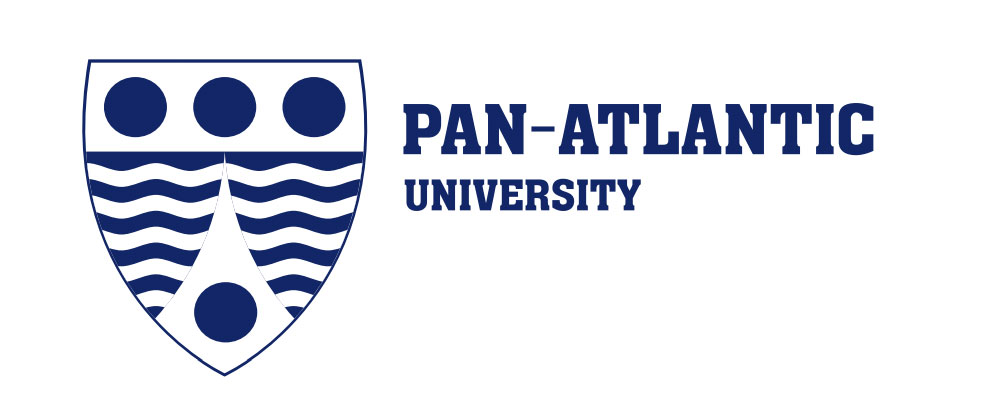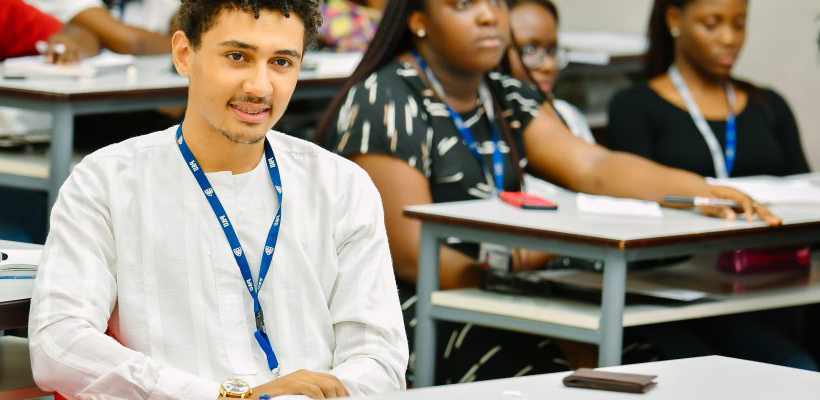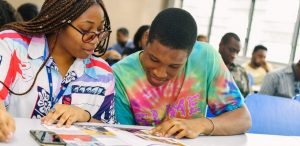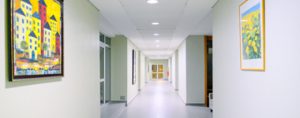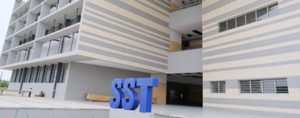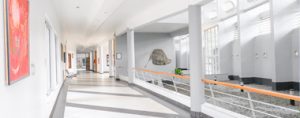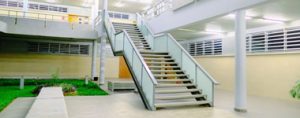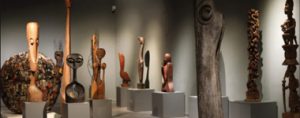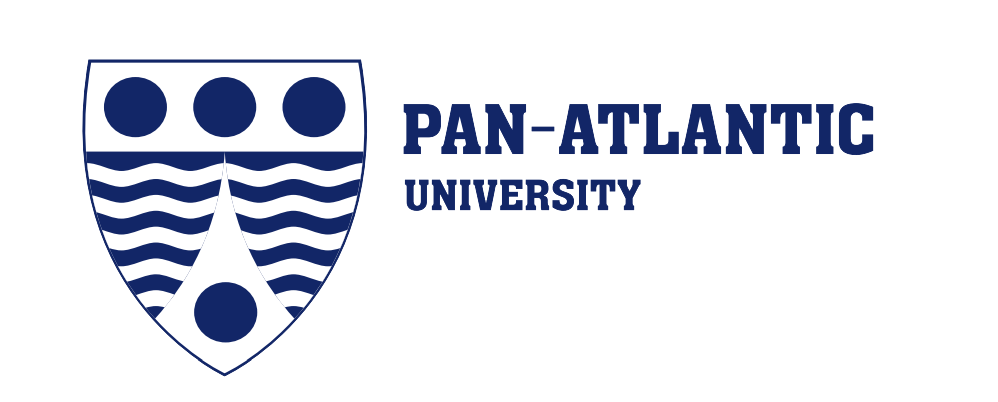English Language Support (ELS) programme: The ELS programme which is anchored by the Community Service Project group of the university is a platform that provides tutorials in the basics of the English language to students from non – English speaking countries, to help facilitate their smooth integration into the PAU environment.
Provision of ramps and elevators: Ramps and elevators have included as part of the structure of most buildings in the university to enable physically challenged students to move around easily within the university environment.
Support for students with learning disabilities:
1. Academic accommodations policy: To provide a level playing field for students with learning disabilities in relation to other students, the university has put in place an academic accommodations policy to address the needs of such students. Once it is medically confirmed and verified that a student has such a disability, academic accommodation is granted based on the requirements of the students and in line with the accommodation approved by the university Senate as at the time of the application for those accommodations by the student in question. Some of such provisions that have been given in the past include longer time duration for assessments, permission to write exams and assessments in a quiet hall secluded from the rest of one’s classmates, allowance to take more assessments than other students and the best chosen, permission to write assessments with a computer even for paper-based exams, etc.
2. First Year Interactions Group (FIG) Programme: The FIG program is a platform that creates learning communities for undergraduates new to the Pan-Atlantic University. It provides information about the university and co-curricular and academic resources through regular interactions and activities led by upper-level peers. It also helps the first years to discover their purpose and to align it with a plan for their future.
3, P2P (Peer to Peer) Programme: The peer-to-peer tutorial program is a student support initiative designed to aid students grappling with academic challenges. It involves pairing these students with fellow peers who offer tutorial sessions to them. This program has significantly improved many students’ academic performance. A total of 71 students benefited from the programme in the 2022/2023 academic session.
4. Guidance and Counselling Unit: The university has a robust guidance and counselling unit which is comprised of a certified Guidance Counsellor and members of the Health and Wellness team (trained members of staff of the PAU community) who are available to provide support to students in matters relating to mental and psychological health.
5. Support for financially disadvantaged students
· Happy (Giving) Wall: This is an initiative of Peter Osilike, a graduate of the Mass Communication department of PAU. This is a “pay-it-forward” initiative with the cafeteria, enabling PAU community members to buy a snack or beverage for students who may not be able to pay for one.
· Need-based scholarships: The university has made need-based scholarships available to impoverished students who would like to benefit from the education at PAU but do not have the financial capacity to do so. A total of 160 students (25% scholarship: 10 students, 50% scholarships: 25 students, 75% scholarship: 23 students and 98% scholarship: 92 students) were awarded need-based scholarships in the 2022-2023 academic session.
Overview:
This policy document addresses the need for reasonable academic accommodations for students with disabilities.
Rationale:
Some students arrive at the University with varying disabilities which makes it difficult for them to cope in the standardized learning environment they find themselves. Academic accommodations do not lower the requirements of the curriculum; they only create a level playing field for students with disabilities in relation to other students. Therefore, the Pan-Atlantic University will put in place reasonable academic accommodations for students with disabilities.
Policy:
- The Pan-Atlantic University will, within reasonable limits, provide academic accommodations for students with disabilities. (see Appendix A for list of accommodations)
- Academic accommodations cannot change the requirements of the curriculum.
- The Student Affairs Office will manage requests for academic accommodations.
- A student must apply to the University for academic accommodations before they can be granted.
- The University will require documentation of disability from an appropriate medical professional and will verify same before a student can be granted academic accommodations.
- The academic accommodations to be granted will be arrived at based on the requirements of the students and limited by the academic accommodations approved by Senate at any given time.
Appendix A
1. Allow the student to record lectures on a device.
2. Provide lecture notes to the student even when not available to the entire class.
3. Allow students to take notes with a computing device.
4. Allow student additional time for submission of assignments.
5. Allow student additional time during tests.
6. Allow students additional time during exams.
7. Give the student the possibility of taking examinations or tests in a private room.
8. Allow students use of a word processor for tests or exams.
9. Allow student the option of an oral examination.
10. Allow the student the help of someone to read out the questions.
11. Allow the student the help of someone to write out the answers he/she dictates.
